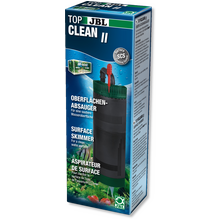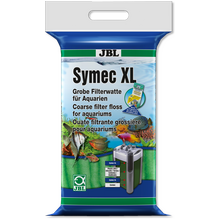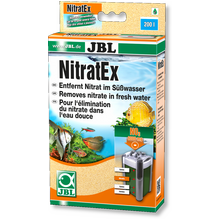The aquarium filter has to be one of the most important technical products to ensure an aquarium functions properly. It has the task of filtering cloudiness out of the aquarium water, providing useful bacteria with a place to settle so that they can break down dangerous nitrogenous substances such as ammonium, nitrite and nitrate, and it provides space for problem-solving special filter material. Up to an aquarium size of 200 litres, you can choose between internal and external filters. Above 200 litres, external filters are the right choice. If you are at the upper end of the filter size recommendation, always choose one filter size up, as you will then have longer cleaning intervals and the larger filter volume (not the pump capacity!) will ensure better aquarium water quality. Always place the water output of your filter in your aquarium in such a way that it GENTLY moves the surface of your aquarium water. Too much water surface movement will expel too much plant-promoting CO2 from your water and too little water surface movement will reduce the oxygen content of the water
A word about cookies before we continue
The JBL Homepage also uses several types of cookies to provide you with full functionality and many services: We require technical and functional cookies to ensure that everything works when you visit this website. We also use cookies for marketing purposes. This ensures that we recognise you when you visit our extensive site again, that we can measure the success of our campaigns and that the personalisation cookies allow us to address you individually and directly, adapted to your needs - even outside our website. You can determine at any time - even at a later date - which cookies you allow and which you do not allow (more on this under "Change settings").
The JBL website uses several types of cookies to provide you with full functionality and many services: Technical and functional cookies are absolutely necessary so that everything works when you visit this website. In addition, we use cookies for marketing purposes. You can determine at any time - even at a later date - which cookies you allow and which you do not (more on this under "Change settings").
Our data protection declaration tells you how we process personal data and what purposes we use the data processing for. tells you how we process personal data and what purposes we use the data processing for. Please confirm the use of all cookies by clicking "Accept" - and you're on your way.
Are you over 16 years old? Then confirm the use of all cookies with "Noticed" and you are ready to go.








